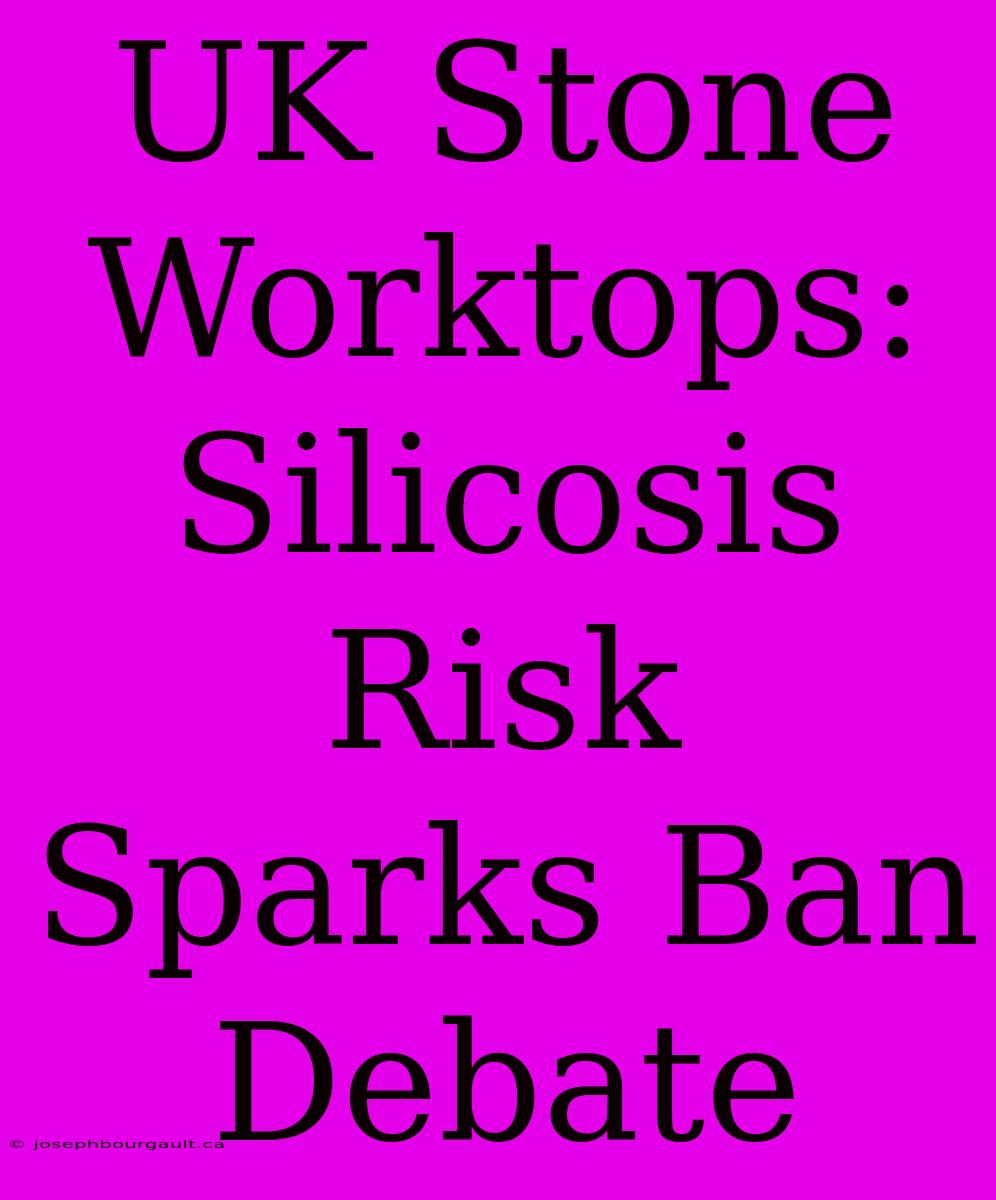UK Stone Worktops: Silicosis Risk Sparks Ban Debate
The use of engineered stone worktops in the UK has come under intense scrutiny following growing concerns about the risk of silicosis, a serious lung disease caused by inhaling silica dust. This has sparked a heated debate about whether a complete ban on these worktops is necessary to protect workers' health.
The Silicosis Threat: A Growing Concern
Silicosis is a progressive lung disease with no cure. It develops when fine silica dust is inhaled and accumulates in the lungs, causing inflammation and scarring. This can lead to shortness of breath, coughing, and ultimately, respiratory failure.
Engineered stone worktops, often made from quartz, contain high levels of silica. The fabrication and installation processes, involving cutting, grinding, and polishing, generate significant amounts of dust. Without proper safety measures, workers are at high risk of inhaling these dust particles, leading to silicosis.
Calls for a Ban: Voices of Concern
The growing awareness of silicosis risks has led to calls for a ban on engineered stone worktops. Unions and health organisations argue that this is the only way to ensure worker safety. They point to the fact that other countries, such as Australia, have already taken this step.
Supporters of a ban cite several key arguments:
- Severity of the disease: Silicosis is a debilitating and ultimately fatal disease, making it crucial to prevent exposure.
- Limited protection: Existing safety measures, such as respirators and dust extraction systems, are not always effective, especially in smaller workshops.
- Long-term health consequences: The effects of silicosis may not manifest for years, making it difficult to attribute the disease to work-related exposure.
Industry Response: Countering the Ban Arguments
The engineered stone industry strongly opposes a complete ban. They argue that the risks can be effectively managed with appropriate safety protocols and training. They also highlight the economic impact of a ban, impacting jobs and businesses in the sector.
Arguments against a ban include:
- Industry commitment to safety: The industry claims to be actively promoting safer working practices and investing in dust extraction technologies.
- Economic implications: A ban would have a significant impact on the construction industry, leading to job losses and economic disruption.
- Alternatives and innovation: The industry is exploring alternative materials and developing more efficient dust control solutions.
The Debate Continues: Finding a Balance
The debate surrounding engineered stone worktops is far from settled. While the risks of silicosis are undeniable, the industry is committed to ensuring worker safety. The challenge lies in finding a balance between protecting workers' health and maintaining a viable industry.
Possible solutions under consideration include:
- Strengthening safety regulations: Implementing stricter guidelines for dust control and worker protection measures.
- Improving worker training: Ensuring adequate education and awareness of silicosis risks and prevention strategies.
- Investing in technological solutions: Developing more efficient dust extraction systems and alternative materials with lower silica content.
- Promoting collaboration: Encouraging dialogue and cooperation between industry stakeholders, unions, and health organisations to find a sustainable solution.
The Future of Stone Worktops: A Time for Action
The UK government is currently reviewing the situation and considering potential action. It remains to be seen whether a ban will be implemented, but the debate has undoubtedly brought the issue of worker safety to the forefront.
The focus now is on finding solutions that protect workers' health while ensuring the long-term sustainability of the industry. This requires proactive collaboration, commitment to safety, and continuous innovation to address the risks of silicosis and create a safer working environment for all.

